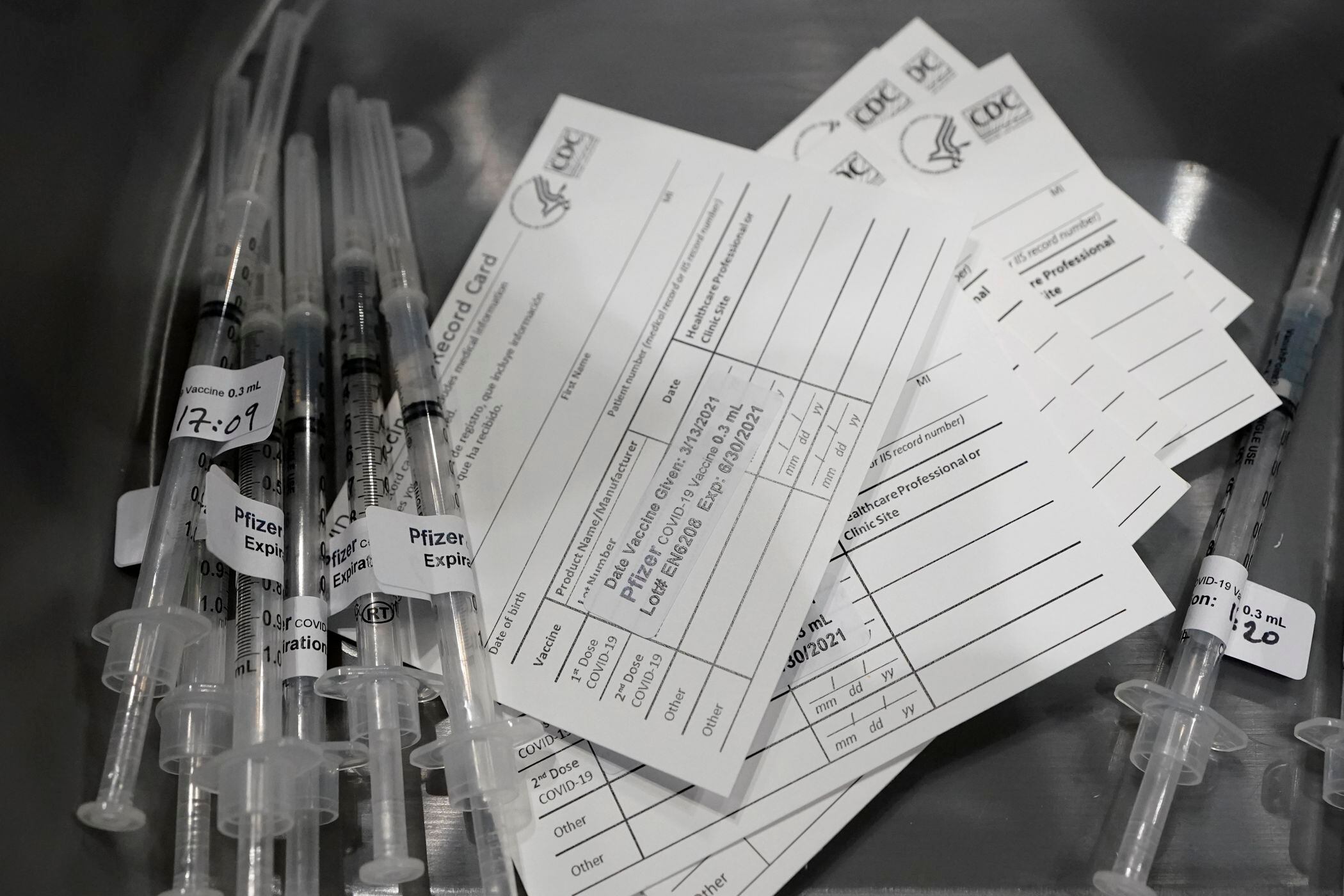Vaccine selfies have become a badge of honor for many people, bringing hope to millions that there might be a way out of this pandemic.
But posting that photo of yourself smiling while masked next to your vaccination card on social media could potentially make you a target for people trying to steal your personal information.
"It's like opening the front door to your house and saying to criminals, 'Come on in,'" said McAfee senior vice president of consumer, Judith Bitterli. "It's not advised."
While medical professionals and government officials have told people to post their vaccine selfies in order to encourage people to get the shots, the FTC recently warned that vaccine cards contain personal information including full names, birth dates, vaccination lot numbers, and other personal information that could put your privacy at risk. Cybercriminals could use this information to find out more about you or potentially hack your accounts because many people use this type of information in their passwords. There are also concerns that posting medical information publicly could void your HIPAA protections or that the cards could be duplicated by someone else and used to steal a second dose.
Though the chance of these scenarios happening is unlikely, it's a good rule of thumb not to post photos with your name and other identifiable content online. A lot of this information can be used to authenticate bank accounts, for example.
"Posting pictures of yourself with your personal information on social media is generally a bad idea," Flore Albo CEO and Georgetown University adjunct professor of cybersecurity, Kate Fazzini said.
Overall, people tend to be lax about their personal information online. Something as simple as a string of vacation pictures could let cybercriminals know you aren't at home at the time, which is especially concerning for public figures or executives who go on a lot of business trips, Fazzini pointed out. Other times people are too eager to volunteer personal information on websites to get their stimulus checks or other money owed to them faster, without checking to see if the site is fraudulent. Or perhaps they'll send compromising photos of themselves to a trusted partner, which could end up as blackmail fodder in the future.
The safest thing to do is set your social media profiles to private or create custom groups of trusted individuals who can see your more sensitive content, McAfee's Bitterli said.
"Those are people who you have actually seen in person and been to your house for dinner," she said.
It's also worth it to take a digital wellness online course on topics like social media, working from home safely, or taking online classes without security risks, she added.
You should also clean up your digital past, removing all unwanted photos, tags, and other data that might provide information to cybercriminals. Bitterli also routinely schedules quarterly purges just to keep up with new content. It's also a smart idea to take these steps before applying to jobs or higher education to make sure your online persona matches the culture of the organization you are trying to join.
"If you have children before they apply for college go through their social media posts," Bitterli said. "Make sure you go through their social media so there's no drunken posts, no pictures of them smoking weed, or doing anything [else]."
If you find you want to be a little more freewheeling with your closest friends, think about creating a second account. Overall, Fazzini recommends deciding what kind of person you want to be seen as online — and sticking to it.
"Do you want to be a fun person who has a lot of friends and plays up that part of themselves?" Fazzini said. "Are you going to be someone who speaks your mind? Decide which kind of person you want to be. If you want to be professional, you don't need to post the other things."



